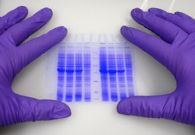Postnatal DNA Paternity Testing
What is postnatal DNA paternity testing and how is it performed?
Postnatal DNA paternity testing can determine the paternity of a child any time after birth.
Postnatal paternity testing is performed by collecting a DNA sample from the cheeks of the mother, each alleged father and each child using a sterile buccal swab. The process is quick and painless.
Who should choose postnatal DNA paternity testing?
Postnatal DNA paternity testing is typically performed for individuals and families who would rather wait until the child is born to perform paternity testing or in cases where the child is an adult. Additionally, in situations where the mother is not willing or able to provide a sample, postnatal testing can proceed without a sample from the mother.
Postnatal DNA paternity testing is also admissible in legal proceedings where the paternity of a child or multiple children are in question.
How we can help.
We can provide confidential and court admissible postnatal DNA paternity testing services. We use only the latest technology to provide fast and accurate results. Our buccal swab collection process involves no needles and is completely painless.
In situations where donors are living in other states or even overseas, we can coordinate the collection of their samples where each donor resides.
Frequently Asked Questions
Do I need an appointment for postnatal DNA Paternity Testing?
Appointments are suggested but not required.
Can the test results be used in legal proceedings?
Yes.
The alleged fathers are brothers or close relatives, is the test still accurate?
Yes. If there are two or more possible fathers and they are brothers or close relatives, we need to know this ahead of time so that additional testing can be performed at the laboratory.
How long will the collection take?
Typically collections take between 20 to 30 minutes depending on the number of donors.
How long before I get my results?
Once all necessary donors have been collected results are usually available in 5 business days.
Is this a blood test?
No. We use buccal swabs on the inside of the mouth to collect DNA from cells on the cheeks.
If the mother is a minor, can she consent to her own testing and the testing of her child?
Mothers who are minors at the time of testing cannot consent to their own testing unless they have been legally emancipated and can provide the necessary documents proving the emancipation. A parent or legal guardian must sign for the mother in these instances.
The minor mother can, however, consent to the testing of her child so long as the mother is still the legal guardian of the child.
If the alleged father is a minor, can he consent to his own testing and the testing of the child?
Alleged fathers who are minors at the time of testing cannot consent to their own testing unless they have been legally emancipated and can provide the necessary documents proving the emancipation. A parent or legal guardian must sign for the alleged father in these instances.
The minor alleged father can, however, consent to the testing of the child so long as they are named as the father on the child's birth certificate.
Can an alleged father test a minor child without the consent of the mother?
If the alleged father has legal guardianship over the child or is listed as the father on the child's birth certificate, then yes, he can consent to testing on behalf of the child. Only one legal guardian must sign a consent for the minor child to be tested.
If a minor child does not have a birth certificate, social security card or a photo id, can they still be tested?
In many cases these documents aren't available when the child is a newborn. Usually testing can proceed without them, but in situations where there are questions or concerns about the guardianship of the child, testing may need to be postponed until proof of guardianship is provided.
Is it possible to know when other donors make their appointments?
No. Appointment information is confidential and is not provided to anyone other than the person who made the appointment.
Information for Donors

Prior to setting up your test
Make sure to have all necessary information before setting up your test.
In some cases, testing may already be set up. To check if testing has already been set up for you, call us at (636) 916-0050. You will need the name of the alleged father when calling. If more than one alleged father is testing, you will only need to provide the name of one.
If testing hasn't been set up already, it will need to be set up before any appointments or specimen collections can be made. To make the set up process quick and accurate, make sure that you have all of the necessary information first.
To set up your test you will need:
- The names (and ages if under the age of 18) of all donors
- The number of alleged fathers to be tested
- If any of the alleged fathers are brothers or close siblings to each other
- The number of children to be tested
- If any legal order of protections or restraining orders are in place between any of the donors (if known)
- If all of the donors are not in the same location you will need the location of each donor
- If a court has issued an order requiring the test
If you do not have all of the information, or are unsure about the information that you do have, please let us know this when setting up your test.

Setting up your test
Setting up your test is quick and can be done over the phone.
To set up your test, call us at (636) 916-0050. When you set up your test, you will be asked to provide some basic information about yourself and the donors.
Payment arrangements are also made at this time if another individual is responsible for payment. Payment arrangements must be completed before any collections can be scheduled or performed. For your convenience, we accept Visa or MasterCard over the phone.

Scheduling your collection
Appointments are suggested but not required.
Call (636) 916-0050 to schedule your collection appointment time or to make changes to your existing appointment.
When calling to schedule your collection appointment, make sure you have all of the necessary information to make the process quick and accurate.
To schedule an appointment, you will need to provide:
- The name of the alleged father. If more than one alleged father is testing, only one name is needed.
- Your name
- Your telephone number
- If any legal order of protections or restraining orders are in place between you and any of the other donors
- If you are scheduling an appointment for a minor:
- Name of minor
- Age of minor
- If the minor is an alleged father, mother or child
- If parent or guardian will not be at the facility at the time of the minor's test collection, prior written permission authorizing the collection must be in place.
- The date and time that you prefer
When choosing an appointment time, please keep in mind that the collection process takes about 20 minutes to an hour depending on the number of donors collected during the appointment. As a general rule, you should allot approximately 20 minutes for each donor being collected during the appointment.
We will make every effort to schedule your appointment for the date and time you prefer, but in some cases the appointment time may not be available.

Providing your specimen
Appointments are required for testing.
Payment is required at this time unless arrangements have already been made. Prior to arriving for your appointment, please be sure to bring with you:
- A valid (not expired) government issued photo ID
Acceptable IDs include (copies or faxes are not accepted):
- Driver's License
- Non-Driver License (state ID)
- Passport
- Military ID
- A copy of any court orders if the testing is ordered by a court
- A list of all names and their associated addresses, phone numbers, fax numbers and email addresses you wish for us to release the results to
If you will be bringing a minor for a collection, you will also need to bring:
- The minor's birth certificate (if available)
- The minor's social security card (if available)
- A photo ID of the minor (if available)
- If you are a social worker for the state and you will be authorizing testing for the minor, you will need to bring proof of guardianship or the court order for testing that specifically lists you as having the authority to authorize testing for the minor
- Proof of guardianship if any of the following are true:
- Your name does not appear on the minor's birth certificate
- Your last name differs from the minor's last name and no birth certificate showing your name is presented
- You are a relative of the minor
- You are a family friend of the minor
Please arrive 15 minutes before your appointment time to check-in and complete the necessary paperwork.
The collection process will take about 20 minutes to an hour depending on the number of specimens collected.

Obtaining your results
Test results are normally available 5 days after the last specimen is collected.
Telephone, fax and emailed results are typically available 5 days after the last specimen is collected. An original certified test result is provided to all alleged fathers and mother (if tested) and typically arrive in the mail 10 to 14 days after the last specimen is collected. Donors can also request to hold certified results at our Saint Charles office for pickup.
For help interpreting your results after you receive them, please call (636) 916-0050 and one of our staff would be happy to discuss your result with you.
Have Questions?
DNA paternity testing is difficult to talk about. We understand.
DNA paternity testing carries with it a lot of emotions. Most individuals and families who are seeking paternity testing are doing so for difficult and sometimes embarrassing reasons. We understand, and we want to do everything we can to make sure that the entire process is quick, easy and as stress free as possible. If you have any questions before, during or after your test, or any step along the way, please let us know. We will be happy to help.